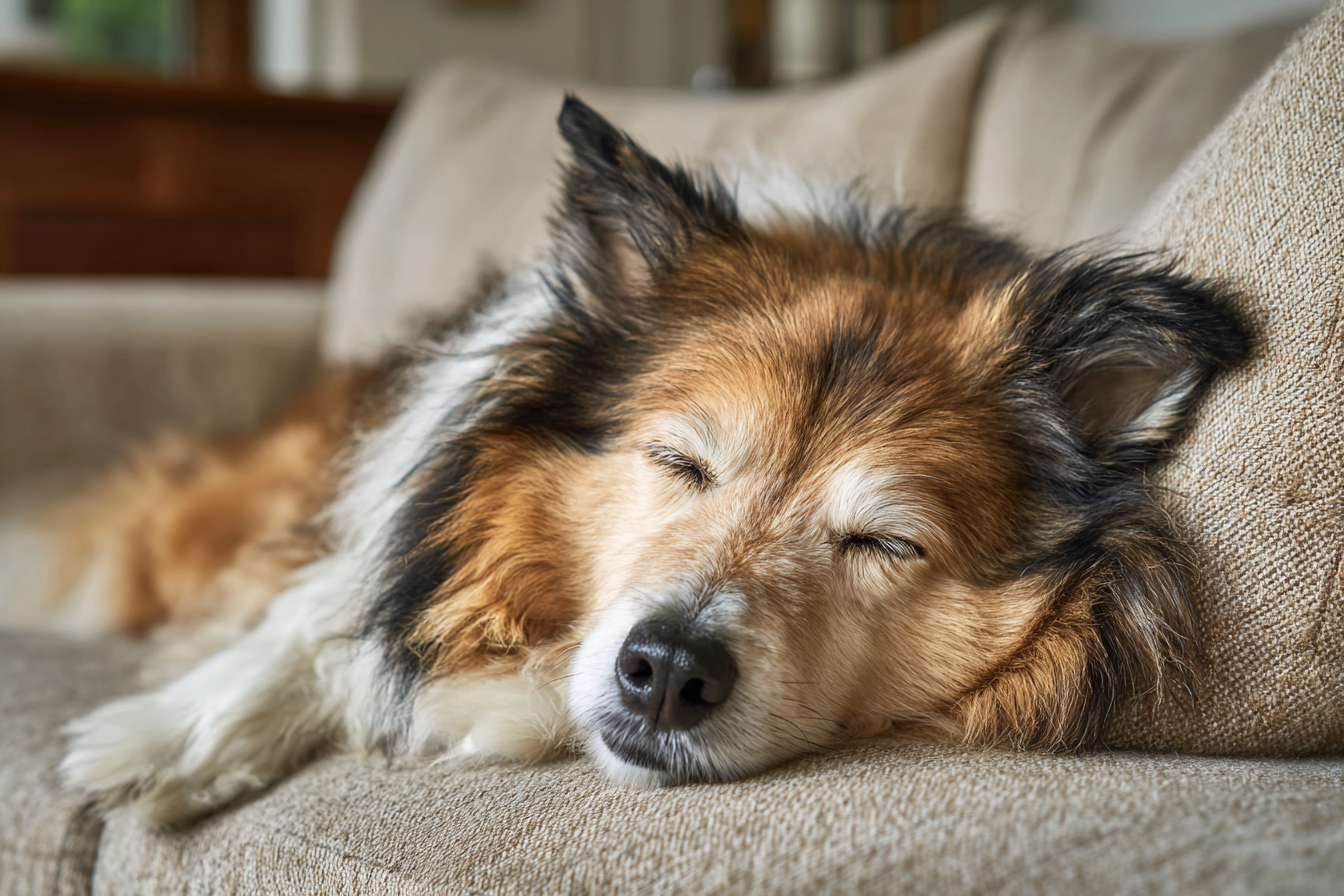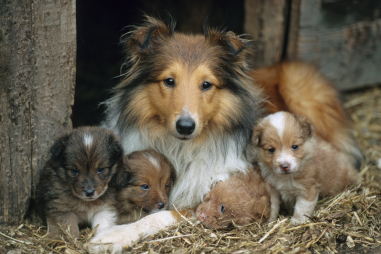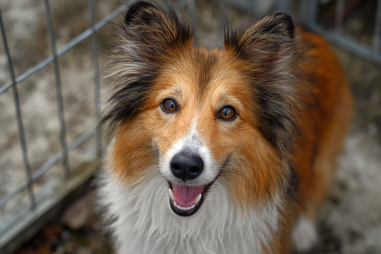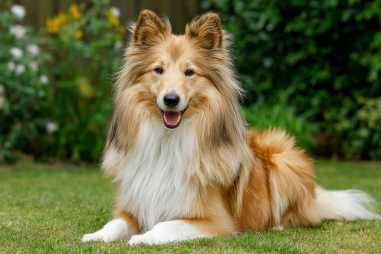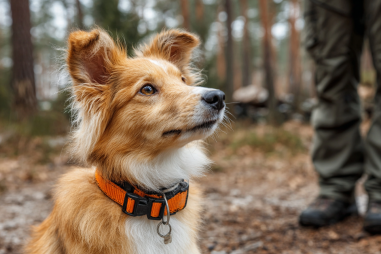As your Shetland Sheepdog enters its golden years, you’ll notice that its energy levels, health, and needs start to change. These beloved Shelties, known for their intelligence, agility, and friendly disposition, require special attention and care as they age. Ensuring your senior Sheltie lives comfortably and happily involves understanding the signs of aging, adapting their diet, managing exercise, and staying vigilant about health issues. Let’s explore some valuable senior care tips to help you support your furry friend during this important stage of life.
Signs of Aging in Shetland Sheepdogs
Recognizing when your Sheltie is entering its senior years is the first step to providing tailored care. Typically, Shelties are considered seniors around 7 to 10 years old, depending on their overall health and genetics. Some common signs that your Sheltie is aging include:
- Slower movements and reduced activity levels
- Graying fur, particularly around the muzzle and eyes
- Stiffer joints or reluctance to jump and climb stairs
- Changes in appetite or weight fluctuations
- Altered sleeping patterns, including longer naps or restless nights
- Cloudiness in the eyes or hearing changes
- Behavioral changes like increased anxiety or confusion
Paying close attention to these signs helps you adjust your care approach early, ensuring your dog remains comfortable and happy.
Adjusting Diet for Senior Dogs
Nutrition plays a pivotal role in managing your senior Shetland Sheepdog’s health. As metabolism slows with age, older dogs often require fewer calories but need higher-quality nutrients to maintain muscle mass and support organ function. Some dietary adjustments to consider include:
- Switching to senior-specific dog food: These formulas are designed with appropriate protein, fat, and fiber levels and often include supplements like glucosamine for joint health.
- Controlling portions: To prevent obesity, monitor food intake carefully and avoid excessive treats.
- Incorporating omega-3 fatty acids: Supplements such as fish oil can help reduce inflammation and support brain function.
- Ensuring hydration: Older dogs may drink less; encourage water consumption by providing fresh water frequently or adding moisture-rich foods.
Consulting your veterinarian before making diet changes ensures the new plan fits your Sheltie’s specific health needs.
Exercise and Mobility Care
Maintaining mobility is crucial to preserving your Sheltie’s quality of life. While senior dogs generally require less intense activity, regular, gentle exercise keeps muscles strong and joints flexible. Recommendations for exercise and mobility care include:
- Shorter, more frequent walks instead of long, strenuous sessions
- Low-impact activities like swimming or gentle fetch to reduce joint stress
- Providing ramps or steps to help access favorite spots without jumping
- Using orthopedic beds for joint support during rest
- Considering physical therapy or hydrotherapy if your Sheltie struggles with arthritis or injury
Always monitor your dog during exercise to avoid overexertion and adjust activity based on their comfort and abilities.
Monitoring for Age-Related Health Issues
Senior Shelties are prone to several health problems that require close observation and timely intervention. Common concerns include:
- Arthritis: Joint inflammation causing pain and decreased mobility
- Dental disease: Tooth decay or gum issues that can affect overall health
- Kidney or liver disease: Organ function decline necessitating specific care
- Heart conditions: Such as murmurs or congestive heart failure
- Vision or hearing loss: Affecting the dog’s interaction with their environment
- Cognitive dysfunction syndrome (doggy dementia): Behavioral changes like disorientation or confusion
Watch for symptoms such as limping, reluctance to move, excessive thirst, weight loss, coughing, or sudden changes in behavior. Early detection through observation and vet visits is key to managing these issues effectively.
Environmental Adjustments for Comfort
Your Sheltie’s home environment should adapt to meet their changing needs, prioritizing comfort and safety. Consider the following adjustments:
- Non-slip rugs or mats to prevent slipping on smooth floors
- Elevated food and water bowls to reduce strain on neck and joints
- Easy access to sleeping areas, avoiding the need for climbing or jumping
- Maintaining a warm, draft-free space as older dogs can become more sensitive to cold
- Limiting stairs or installing baby gates to prevent injuries
- Providing cozy and supportive bedding that cushions joints
By making these changes, you help your Sheltie move around confidently and rest comfortably.
Regular Veterinary Check-Ups
Frequent visits to the veterinarian are essential to proactively managing your senior Sheltie’s health. Ideally, schedule check-ups every six months to monitor ongoing issues and perform preventive screenings. During these visits, your vet can:
- Conduct thorough physical exams to detect early signs of illness
- Perform blood tests to assess organ function, hormone levels, and detect infections
- Evaluate dental health and recommend cleanings or treatments
- Discuss any behavioral or mobility changes observed at home
- Adjust medication or supplements based on current health status
Maintaining an open dialogue with your vet ensures your Sheltie’s individualized care plan stays current and effective.
Mental Stimulation for Older Dogs
Keeping your Shetland Sheepdog mentally engaged is just as important as physical care. Cognitive decline can occur in senior dogs, but regular mental stimulation can help preserve brain function and improve quality of life. Ideas for mental enrichment include:
- Puzzle toys and treat-dispensing games that stimulate problem-solving skills
- Gentle training sessions to reinforce commands and provide social interaction
- New scent trails or safe interactive toys to encourage sniffing and exploration
- Short social visits with other dogs or people to maintain social skills
- Listening to calming music or nature sounds to reduce anxiety
Tailor mental activities to your dog’s interests and energy levels, aiming for gentle stimulation without overwhelming them.
Supporting Your Senior Shetland Sheepdog Every Step of the Way
Watching your Sheltie age is both a rewarding and challenging experience. By recognizing the signs of aging, adjusting care routines, and staying attentive to your dog’s health and happiness, you can ensure they enjoy a fulfilling senior life. Here’s a quick checklist to guide you through:
- Observe and note changes in behavior and physical condition
- Transition to a senior-appropriate diet and monitor portions
- Provide regular, low-impact exercise and mobility aids as needed
- Modify the home environment for safety and comfort
- Schedule veterinary check-ups every six months or as recommended
- Keep your dog mentally active with games and gentle training
- Provide lots of love, patience, and companionship throughout their golden years
Your devotion and care make all the difference in your senior Shetland Sheepdog’s quality of life. Embrace this special time with understanding and tenderness, creating many joyful memories with your cherished companion.

